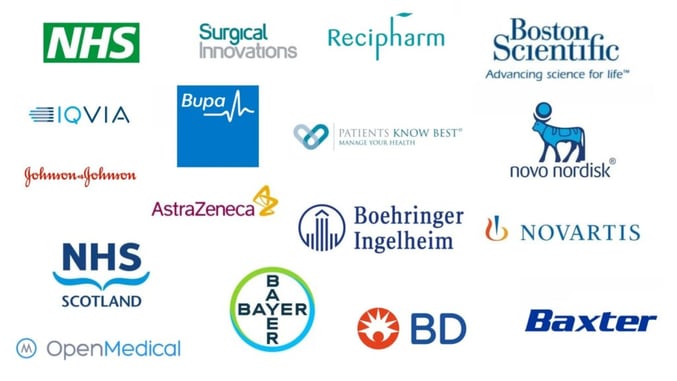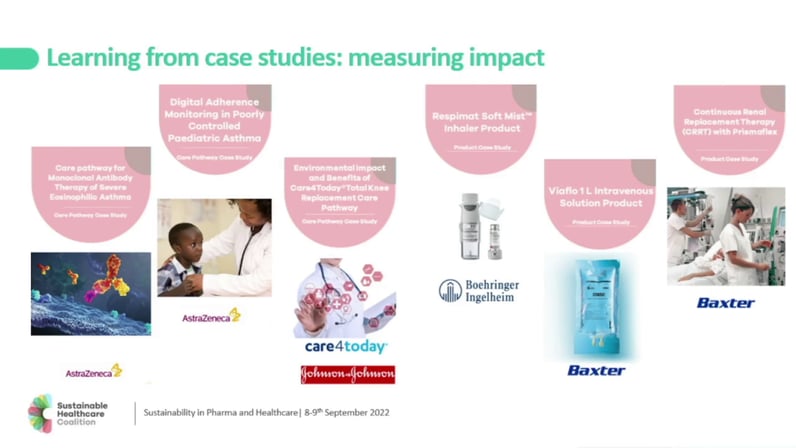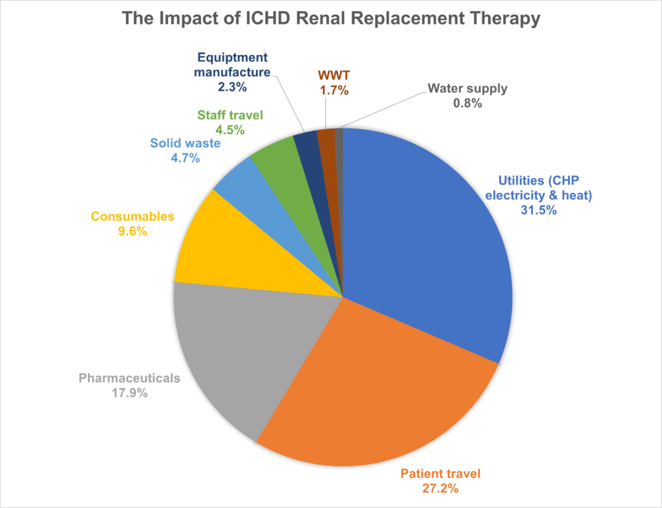The Power of Collaboration: How The Sustainable Healthcare Coalition Measures the Impact of Sustainable Healthcare

Fiona Adshead is Chair of the Sustainable Healthcare Coalition, an organisation that strives to create partnerships within healthcare and medicine to tackle our century’s defining issue: climate change. In her presentation at Sustainability in Pharma & Healthcare Congress 2022, Adshead stressed that collaboration with industry was a vital part of the sustainability project. Furthermore, a holistic approach that considers the dimensions of care is necessary because the care system is complex and intertwined.
The first influences for the Sustainable Healthcare Coalition (SHC) occurred over a decade ago, when the NHS invited companies to come together to measure the carbon footprint of medicines devices and care pathways.
Today the SHC is still growing, with 17 member organisations across both the public and private sectors. The goal is to foster precompetitive, trusting conversations where each party can get to know the others and move forward for change.

SHC Partners
“Measuring impact is really important,” said Adshead, this is why the SHC produced the first guidance on how to footprint the greenhouse gas emissions of medicines and devices. “However, this shouldn’t be taken in isolation, the next task was to figure out how to break down the metrics when the patient moves through the care system.”
RELATED:
- Sustainable Medicines Partnership: A Pan Stakeholder Action Collaborative
- Refractive Index Paves the Way to Greener Peptide and Oligonucleotide Synthesis
- Insulin: Recombinant Production, Sustainability, and Chemistry
For example, patient travel, be it a GP visit, an emergency department visit, an inpatient bed day, or surgical procedure will all have their own carbon metrics which can be measured. The SHC has produced an online ‘care pathways calculator’ which enables its users to ask ‘what if’ scenarios to push for improvement and appraisal of care pathways. Adshead said that the goal was to create models for measurement rather than standards, based on an attitude of continuous improvement.
The SHC wants its members to design a more sustainable approach toward all aspects of their operations. This demonstrates that innovation can reduce environmental impact.

They have also collaborated with colleagues in the Academic Health Science Network about the role of early diagnostics. For example, if pre-eclampsia were able to be diagnosed earlier, it would be known with much more accuracy whether a hospital stay was necessary after delivery which could save up to 3 million miles driven each year.
Renal Care Pathways
During the pandemic, the SHC worked with Newcastle Hospitals NHS Foundation Trust to look at renal care pathways. “This was totally inspirational,” said Adshead, “during all the chaos of the pandemic, they were helping to break down renal care pathways.”

For example, results from breaking down emissions in this way saw that patient travel was a large proportion of the hospital’s carbon footprint. This breakdown is invaluable to the team as it identifies areas for change. The SHC ask companies that have products and services within their care pathways to collaborate with them and share their impact, which they can collate to assess the overall effect.
The SHC are also working nationally with the UK Kidney Association to innovate and improve dialysis machines, water purification, and energy efficiency. Moreover, they are working on a system that can assess the carbon emissions from the whole of the renal care system. The Greener NHS team are also collaborating using the SHC’s care pathway calculator as a prototype that can be used by most renal physicians to continuously improve the sustainability of their care.
General Practices
The team also want to see sustainable approaches to general practices. Matt Sawyer, a leading GP involved with the project, worked with SHC to create his own carbon calculator for GPs. The goal of this carbon calculator is to footprint practices beyond just medicines devices, including the finer points of how a GP surgery is run.
“We don’t keep people’s data, but we allow them to do their own analysis,” said Adshead. She added: “It’s more a tool for people to think about how they can change their environmental practices.” At the moment, a number of practices are using it to consider their energy efficiency. Adshead said that Sawyer had championed the adoption of the carbon calculator into a new publication by the Royal College of General Practitioners.
New Opportunities To Drive Change
Digital health has radically changed the care sector: patients now have a clinician in their pocket; the ability to receive medical advice and support at the touch of a button. However, Adshead explained that we shouldn’t assume that this new care paradigm will be automatically better for the environment: “we need to measure it.”
The SHC are working with their member Patients Know Best to consider the environmental impact of patient centric pathways. One approach lies in their digital platform which allows patients to request early treatments for inflammatory bowel disease so that they can cut out travelling to hospital unnecessarily.
Low Carbon Clinical Trials
In 2007, the Sustainable Trials Study Group warned of the environmental impact that clinical trials cause, mostly due to air travel and energy usage. Clinicaltrials.gov lists 350,000 ongoing clinical trials, the carbon emissions from which amounted to one third of a country like Bangladesh’s emissions.
The team were able to secure a grant from the National Institute for Health and Care Research (NIHR) along with colleagues from the Institute of Cancer Research and the Liverpool Clinical Trials Unit. The collaboration observed the organisations’ care pathways, asked what activities needed to be measured, what their environmental impact was, and how they could be taken in a more sustainable direction.
What The SHC Has Learnt and Future Goals
Adshead rounded off her presentation by discussing the lessons that the SHC had learned from these projects, and what was next for the organisation. “If you can build trusted partnerships, you can accelerate change across the system through the power of open minded conversations with common purpose.”
Further objectives that the SHC had discovered were seeking new perspectives from clinicians and patients and focusing on service delivery problems to release energy for innovation. The SHC want to reimagine the outlook on system rules so that quality is based on environmental impact as well as clinical outcomes and cost. The hope is also that by promoting transparency, measuring impact, and demonstrating that change is possible via case studies, these tenets can be achieved.
Our Sustainability in Pharma & Healthcare Congress programme brings together international pharmaceutical organisations and healthcare providers from around the globe to discuss and cooperate on carbon zero and sustainability targets. Join over 150 leaders in sustainability, global supply, procurement, sustainable medicines and climate policy in this unmissable In-Person event.







